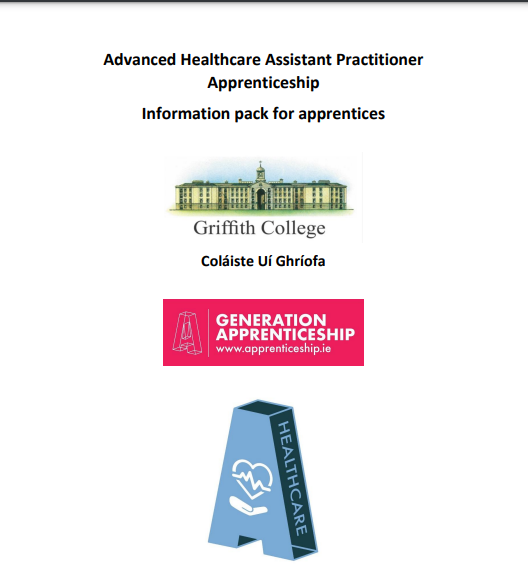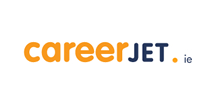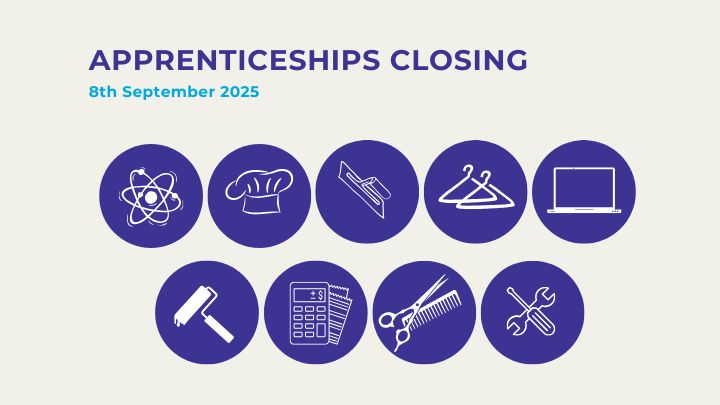In Summary
As an advanced healthcare assistant practitioner you will work as part of the multidisciplinary care team in a manner that provides safe, compassionate, respectful and empathic wellbeing to a wide range of care recipients including those with a disability.
You will promote health, longevity and independence and thereby support care recipients in all activities of daily living. You will work as part of a team assisting with risk management, audits, and supporting other colleagues.
The programme aims to produce compassionate, competent and confident advanced healthcare assistant practitioners (AHAPs) who are qualified to deliver a wide range of clinical and care skills, can work autonomously within the context of their role, and who demonstrate the requisite interpersonal skills
On completion of this two-year apprenticeship, you will become a fully qualified Advanced Healthcare Assistant Practitioner, with an NFQ Level 6 Higher Certificate in Healthcare Support Practice.
You may then choose to work as a qualified Advanced Healthcare Assistant Practitioner in the healthcare industry. You may also use the qualification to progress within the sector and/or to higher education programmes.
Read the Advanced Healthcare Assistant Practitioner Information Pack Above
View Occupation Profile from Apprenticeship.ie
To view full details of this occupation, view information from our Careers database for the following occupation: Advanced Healthcare Assistant Practitioner
Entry Requirements
Entry requirements
Candidates for this programme must meet one of the following profiles:
(i) Employed healthcare assistants who have a relevant healthcare NFQ Level 5 Major Award (120 credits), with distinction in at least three components, or equivalent qualification, including those from another awarding body which is mapped to level 5 on the National Framework of Qualifications, plus a minimum of six months' work experience in the healthcare sector.
(ii) Leaving Certificate: five subjects with O6 / H7 to include English and a minimum of foundation mathematics and at least two relevant NFQ level 5 healthcare components – 30 credits, or equivalent qualification plus a minimum of six months’ experience of working as a healthcare assistant.
(iii) A mature candidate, over the age of 23, who does not hold an NFQ Level 5 qualification as set out in categories (i) or (ii) above, or equivalent, but who has a minimum of two years’ experience working as a healthcare assistant, is recommended by their employer, and demonstrates the correct attitudes, behaviours and literacy skills is also eligible to apply.
The English language entry requirementsfor the programme are CEF B2+ or equivalent. Candidates with English language levels below CEF B2+ must first reach this minimum standard before enrolling on the academic programme.
Candidates must have certified people moving and handling, and first aid responder skills, garda vetting and any relevant vaccinations for their work place in advance of their enrolment on the programme.
To work in the Healthcare profession you must be registered with CORU - Learn more about CORU registration here
Training
Year One Modules
Skills & Qualities
Assistant practitioners need to be:
- Caring and kind
- Confident with using lifting equipment
- Willing to be hands-on with patients
- Able to follow instructions and procedures
- Able to work in a team but use their own initiative
- Able to explain procedures to patients
- Careful and methodical
You'll also need effective:
- Communication skills, including listening
- Organisational skills
- Observational skills
Work Activities
Generic Skills
- Maintaining a safe environment
- Assisting in health promotion
- Supporting independence
- People moving and handling skills
- First aid responder skills
- Implementing cleaning protocols
- Communicating effectively with:
- Care recipients
- Families
- Colleagues
- Multidisciplinary team
Clinical Skills:
Working under the direction of a registered nurse or other registered healthcare professional, the Advanced Healthcare Assistant Practitioner will assist in the following skills for which they have proven competence.
- Administration of topical medications/eye-drops/eardrops/nasal sprays, and prompting medications from blister packs
- Administration and monitoring of sub-cutaneous fluids
- Female catheterisation and basic catheter care; catheter removal
- Basic wound cleansing and dressing
- Blood glucose monitoring
- Collection of laboratory specimens (e.g. MSSU/CSU; Sputum; Faecal, etc.)
- CPR
- Enteral/PEG feeding
- Fluid balance and nutritional intake recording
- Monitoring of elimination
- Oxygen therapy and nebulisation
- Stoma care
- Urinalysis
- Vital signs monitoring (including blood pressure, pulse, respirations, temperature)
- Weight monitoring
Care Skills:
- Assisting with nutrition and hydration
- Assisting/supporting activities of daily living
- Assisting care recipient autonomy in their own care
- Contributing to interactions with family members in the care strategy
- Supporting care recipients suffering from a range of disabilities
- Using medical and mobility devices Competences
- Mouth care
- Use of continence products
- Assisting in Implementing a falls prevention strategy
Learn more about the work of a Healtchcare Practitioner here:
Career Progression
Successful apprentices can progress to senior healthcare assistant roles in a variety of health care settings:
- Hospitals
- Residential homes
- Home and community care
- Day care centres
- Disability care centres
They can also progress their education and training in the areas of social care, nursing or community studies at third level colleges.
Apprentices who complete this professional health care assistant apprenticeship and wish to transfer or progress to an alternative career path, would be eligible for entry onto NFQ Level 7 programmes available nationally.
Depending on the nature of the subsequent programme, they may be eligible for either direct or advanced entry.
Career Progression Useful Links: Educational Supports
On completion of an apprenticeship your educational progression options may be offered as full awards on the NFQ levels 7-10 National Framework. You may also decide to embark on a partial award or to up skill in a particular area by undertaking a short specialised course.
Depending on your skills, knowledge and experience some of the opportunities below might be appropriate to help develop your Career pathway.
- Springboard & conversion courses
- Skillnet Sector learning network courses
- Skills to advance Local ETB Board
- Further education training centres Fetchcourses
- Post graduate education Search Post Graduate options
Enterprise and Self-Employment Support:
On completion of anapprenticeship if you feel you have the appropriate knowledge, skills and experience you may decide to set up your own business. The links below might be useful to support you’re here
- Local Enterprise Offices, For profit Local enterprise support
- Local Area partnerships For profit enterprise support
- Social entrepreneurs: Not-for-profit enterprise support
- Franchising: Developing your business under an established franchise
Getting this Apprenticeship
Steps to getting this apprenticeship
Step 1
To become an apprentice in Ireland you must be hired by an employer. Apprenticeship employers are formally approved by SOLAS in advance of employing apprentices. Apprentices get a formal contract of employment as part of their apprenticeship.
To secure this apprenticeship you must be employed by an approved employer who is willing to support you during this apprenticeship.
AND one of the following applies:
- NFQ Healthcare level 5 Major Award with a minimum of 3 distinctions.
- Leaving Certificate with five subjects O6/H7, at least foundation mathematics, six months’ relevant work experience and two relevant NFQ level 5 healthcare components.
- Mature candidate with two years’ experience working as a healthcare assistant.
English Language Requirements
The English language entry requirements for the programme are CEF B2+ or equivalent. Candidates with English language levels below CEF B2+ must first reach this minimum standard before enrolling on the academic programme.
Additional Requirements
Employers are required to ensure that apprentices have certified people moving and handling, and first aid responder skills in advance of their enrolment on the programme.
Candidates also need to be Garda vetted and have had any relevant vaccinations for the workplace.
To work in the Healthcare profession you must be registered with CORU - Learn more about CORU registration here
Step 2
This apprenticeship is managed by Griffith College. If you are interested in the advanced healthcare assistant practitioner apprenticeship you should make contact with Griffith College via the contact details below.
You can apply to this programme here
Full eligibility criteria for this apprenticeship are available in the Advanced Healthcare Assistant Practitioner Apprenticeship brochure.
You can express your interest in the Advanced Healthcare Assistant Practitioner apprenticeship on the Griffith College website here.
To find an apprenticeship, you can search apprenticeship vacancies and a list of currently approved apprentice employers on the Apprenticeship Jobs & Employers Portal. You can search for vacancies by location, and employers in each apprenticeship.
Use this link to explore a list of Approved Employers by Region and by Apprenticeship type.
Further information is also available from:
Jonathan Murphy
National Programme Director
Griffith College
South Circular Road
Dublin 8
Tel: + 353 (0)1 4150400
Email: [email protected]
Web: https://www.griffith.ie/faculties/apprenticeships/courses/higher-certificate-healthcare-support-practice-apprenticeship
Finding an Employer
Finding an employer or registering your interest with an official Coordinating Provider is one of the first things you need to do to start an apprenticeship.
To find an apprenticeship and secure an apprenticeship work contract you can search apprenticeship vacancies on the Apprenticeship Jobs Portal . You can search for vacancies by location and by apprenticeship type.
Your local Education and Training Board may also hold details of employers seeking to employ an apprentice.
You should also directly connect with local employers who might be interested in taking on an apprentice. It is a great idea to get a part time job with a local employer who might be more inclined to take you on as an apprentice following a successful work experience placement or a part time job contract.
Further information about this apprenticeship may be available from the following organisations on this website:
Online Job Sites
Here are some direct links to employment websites that frequently list apprenticeship vacancies.
Note: These websites may include vacancies that are not QQI accredited Apprenticeships.
Pay & Fees
As an apprentice, you earn while you learn. The employer pays you a salary while you are being trained on-the-job and off-the-job. The rate of pay is agreed between you and your employer.
Apprentices complete their off-the-job training in a higher education institution, for which they are required to pay a student contribution.
The amount payable is a proportion of the annual student contribution for students attending a full-time course in higher education. The student contribution is paid directly to the higher education institution over the two years.
- Fees can be paid by flexible instalment payment plans.
- Fees can also be paid by one's employer as part of training fees.
Student Contribution
| Year 1 | €1,000 |
| Year 2 | €1,000 |
| Total Fee: | €2,000 |




















